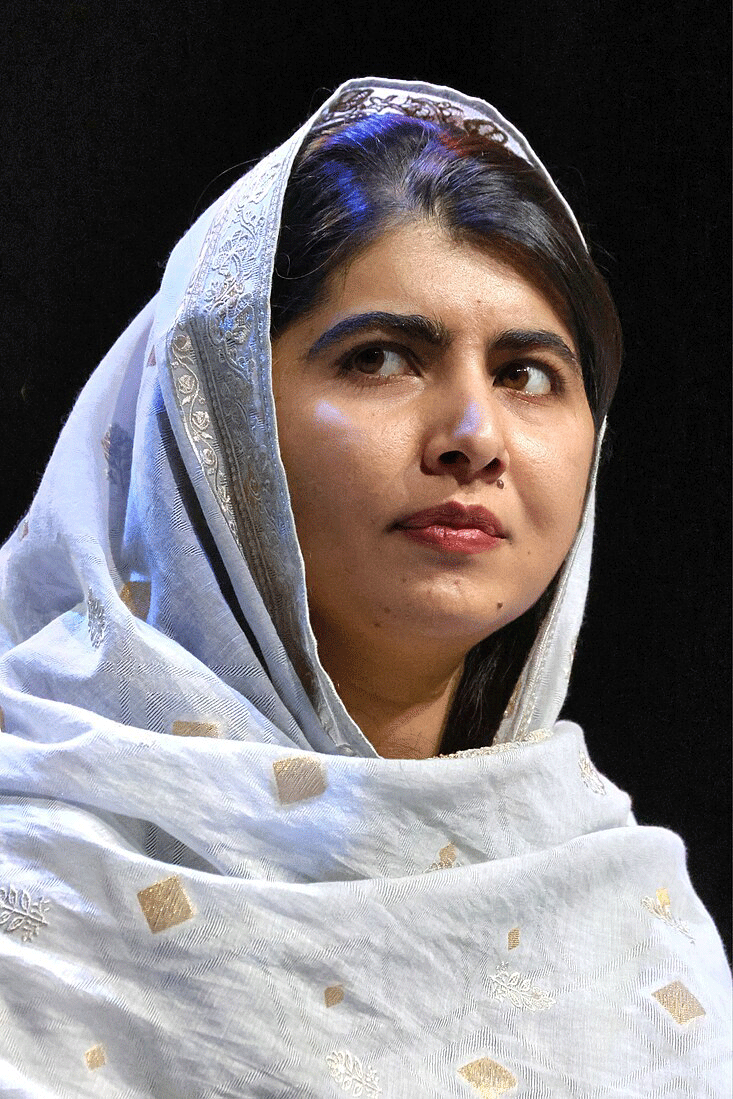
Who are the 21st century leaders?
Where can we find them?
The premise—stated or unstated—is that there’s a leadership gap today.
Who can argue against the spectacular failures of leadership in large institutions? They range from the White House and Congress (whether in the hands of the Democrats or Republicans); to Wall Street and back around to Main Street; in the public, private and not-for-profit sectors (including religious institutions); around the world.
It’s easy—perhaps too easy—to find reason for disappointment. And yet… there is also reason for optimism.
It’s often said that these are among the worst of times for leadership… it’s also, arguably, the best of times. By various measures, there are many great leaders today—or, at the least, many individuals and teams making extraordinary contributions.
This list is updated as events unfold. Please send your suggestions of other inspiring 21st century leaders.
What is 21st Century Leadership?
Serve to Lead is a manual for 21st century leadership effectiveness. It includes a working definition of 21st century leadership, as well as a comparison between 21st century leadership with 20th century leadership. The book offers 21st century leadership principles, linking theory and practice.
To be sure, many individuals in high leadership positions today are falling far short of the standards demanded by the level of events. And yet, many others are achieving unprecedented levels of service in unexpected, non-traditional settings.
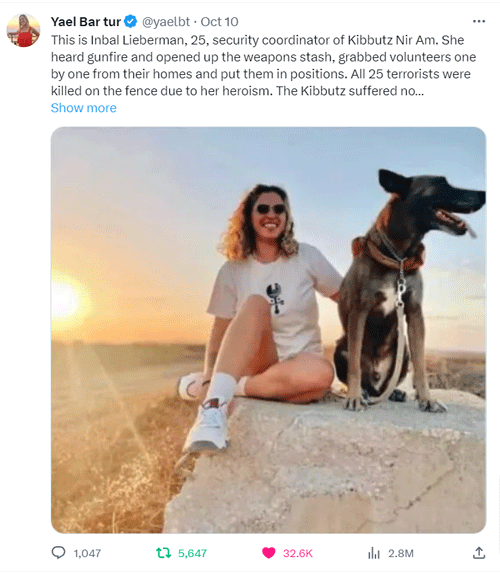
Inbal Lieberman, 25, is the security coordinator for the Nir Am kibbutz, near Gaza. When Hamas terrorists unleashed a surprise attack in the early morning hours of Saturday, October 7, 2023, Lieberman moved immediately to awaken and alert neighbors. She distributed guns to a dozen others, who assumed defilade positions. Lieberman and her neighbors killed 25 attackers in an extended firefight. Her summation: “I’m not a hero. I wasn’t there by myself.”
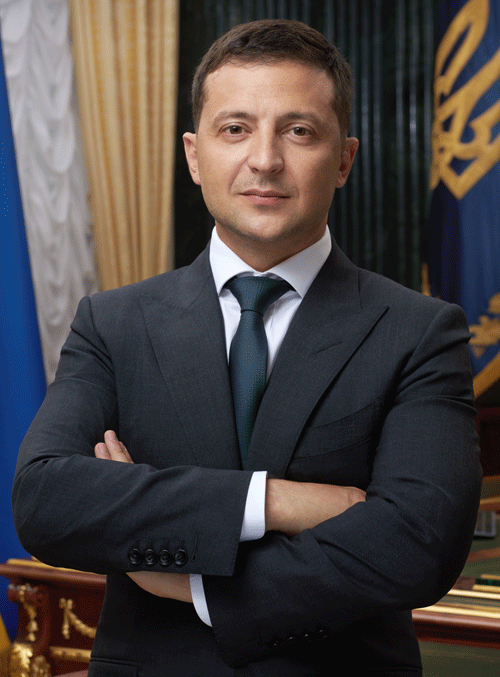
21st Century Leaders in Politics and Government
Recent years have been marked by a decline in public confidence in and prestige of holders of high political office. There is now a wave of change, seeking disruption. This is reflected in the surprise election results in the American presidential election in November 2016, presaged in the “Brexit” referendum in June 2016.
—Volodymyr Zelensky. The world is witnessing the extraordinary stand of the comedian-turned-politician, alongside his wife and young children, against the unremitting brutality of Russia’s gangster regime. As dictator Vladimir Putin exhibits many of the most lamentable human traits in his pursuit of a revanchist Russian nationalism, Zelensky has elicited a contrasting, courageous nationalism among a Ukrainian people who have endured some of the most grievous violence of the past century. Routinely compared with Winston Churchill, Zelensky is reviving heretofore fading notions of courage and character, adroitly applying twenty-first century social media. His performance in the next phase of the conflict will be of critical importance in Ukraine and beyond—and may require extraordinary moral courage to match his physical courage. Twitter/X.
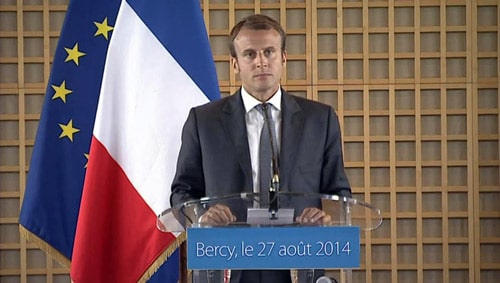
—Emmanuel Macron. At the age of thirty-nine, outsider candidate Macron successfully sought the presidency of France in his first bid for elective office. Running as an independent, the erstwhile socialist civil servant and banker swept into office by a nearly two-to-one margin over the nationalist Marine Le Pen. In the USA and other European capitals there is palpable relief that the French have opted for a leader committed to the European project. This may have prompted some to underestimate the disruptive political achievement of Macron in his own nation. His example will be studied by many other reformers, worldwide. With the rise of the yellow-vest movement prompted by the ongoing rise in gasoline prices, exposing the cleavage between urban and rural constituencies, Macron’s leadership is under challenge and scrutiny. Will the president be able to translate his technocratic and political dexterity into a lasting mechanism of governance? Or will his administration be swept away as a transitional arrangement? He appears to be turning toward a Gaullist, nationalist approach as he successfully achieved reelection amid attempting to serve as a mediating force in the Russia-Ukraine war. Twitter/X. Facebook.
—Angela Merkel. The longtime, former chancellor of Germany is a remarkable presence on the world scene. A native of East Germany, Merkel is scientifically trained. She served as environment minister in the cabinet of her predecessor, fellow Christian Democratic Chancellor Helmut Kohl. She skillfully navigated the tortuous path of leading the most powerful nation in Europe, methodically moving into the future while aware of the various concerns prompted by Germany’s record in the twentieth century. It is at once striking and symbolic that Chancellor Merkel conveys a gravitas in public settings that is not reliably found among contemporary heads of state. Merkel’s low-key style doubtless prompted some to underestimate her (at least initially), and others to not fully appreciate the unlikely combination of traits she brings to her leadership project. Her legacy is under fire following the refugee crisis of 2015, her decision to phase out nuclear energy, and the unwinding of the half-century policy of Ostpolitik that she maintained and which met its likely end amid her successors’ response to the Russian invasion of Ukraine in 2022. Her next act will be fascinating.
—Narendra Modi. India’s emergence as an economic and military power is one of the great stories of the 21st century. In their 15th prime minister, Narendra Modi, the leader and the Indian people may have met their historic moment. Modi is a reformer, with particular focus on economics and finance. He’s made India’s presence felt on international issues such as climate change. Modi combines a personal style of restrained, methodical assertion, with openness to the free-for-all of social media. He’s a power user of Twitter/X and Facebook, well worth following.
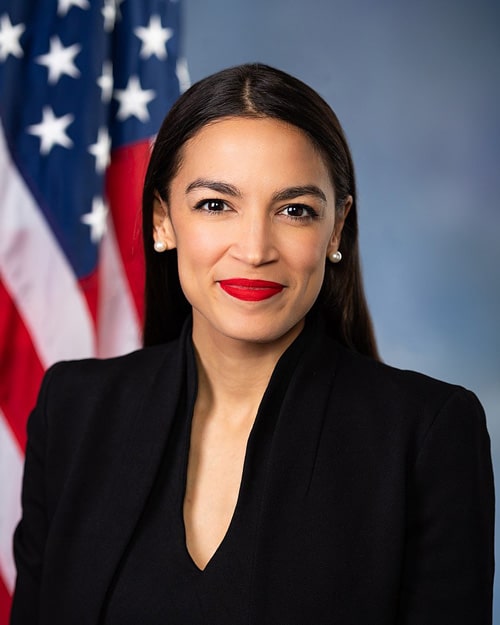
—Alexandria Ocasio-Cortez. The Trump ascendancy and administration awakened a powerful response. One indication is the rise of a young politician from the Bronx and Queens, a twenty-nine-year-old neophyte who upended a napping incumbent in the Democratic primary, winning a seat in the House. AOC, as she is known, exhibits communications skills not unlike those of her frequent target, Donald Trump. Her use of social media is smart, determined and effective. What will her future bring? Twitter/X.
Looking beyond traditional governance, 21st century leadership is emerging in alternative ways. As in all eras, in part it is linked to changes in information technology.
Two exemplars of the changing terrain of 21st century leadership in politics stand out, each tempered by the cauldron of change underway in the greater Middle Eastern region:
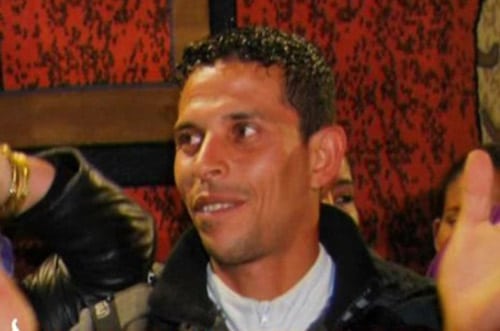
—Mohamed Bouazizi. The tumult known as the Arab Spring was sparked by the 26-year-old fruit vendor, who set himself afire in suicidal protest against governmental abuses in Tunisia. 21st century communication tools spread his message through the world, sparking courageous action throughout the Arab world in 2011.
—Malala Yousafzai. A Pakistani schoolgirl was shot in the head and neck at point-blank range by Taliban gunmen. Despite their savagery, Malala’s mind and heart emerged stronger than ever. She inspires people world-wide, including girls seeking education against the odds. 21st century communication tools accorded unprecedented influence to a teenager who personifies timeless virtues–and her leadership journey continues into adulthood. Now an Oxford graduate, Yousafzai is continuing her activism on a global scale. Her memoir, Finding My Way, has been eagerly anticipated. Twitter/X.
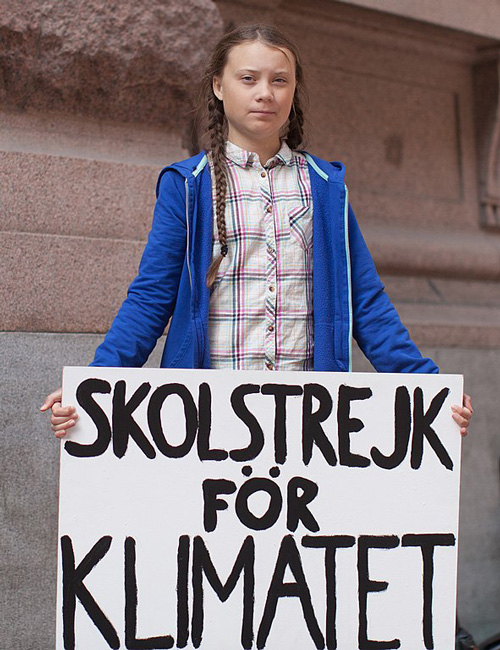
—Greta Thunberg. Greta Thunberg once described herself as a “sixteen year old climate activist with Asperger’s.” Now, as a young adult, the Swedish activist continues to make waves worldwide, increasinly linking climate with other issues. Her voice takes her cause to politicians and the general public. Her next phase will be worth watching. Twitter/X.
If the nation-state is in a malaise–waiting inevitable disruption—subsidiary governmental levels are often moving ahead:
—State of California. California’s shortcomings in governance are widely known, even notorious. Tellingly, the Golden State is hemorrhaging population for the first time in its storied history. That should not obscure the fact that the Golden State’s governance remains world-leading in environment and energy. In a time when the last major United States environmental statutory reform is more than a generation-old—the Clean Air Act Amendments of 1990—California’s enduring environmental leadership role looms large, now requiring reform and updating to meet emerging challenges, including state government dysfunction.
21st Century Leaders in Business and Finance
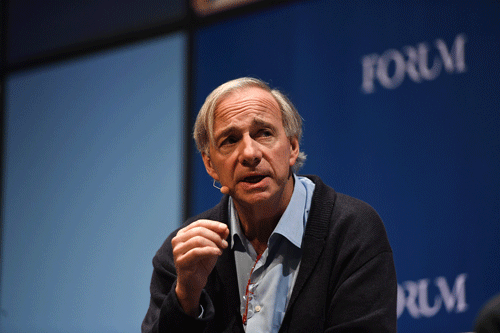
To an extent not seen since the dawn of the 20th century, business and finance is outpacing and displacing the nation-state as a driver of work and life. Where U.S. Steel had a larger capitalization than the entire U.S. federal government budget in 1901, now a number of companies have greater resources than many nations.
Among the 21st century leaders:
—Jeff Bezos. Amazon.com continues to cut a swathe across the realm of retail, from books to groceries to clothing to electronics. Bezos has now moved into Washington, D.C., purchasing the Washington Post from the Graham family. Is he playing corporate defense—or preparing to disrupt American politics? His retirement as CEO presages a new phase in his extraordinary leadership journey.
—Sir Richard Branson. Branson brings together business and art and life. His entrepreneurial ardor renders the Virgin brand a worldwide phenomenon. His joie de vivre is an infectious inspiration. Branson’s mantra—”Screw it, just do it!”—encapsulates a universal can-do spirit of action, action, action.
—Ray Dalio. Dalio, billionaire founder of Bridgewater Associates, has emerged as a twenty-first century elder statesman in a way once associated with legendary lawyer-statesmen such as Elihu Root. He speaks and writes frequently on national and international issues, including on social media. Twitter/X.
—Bill Gates. His contributions go well beyond helping set off the creative destruction of the Information Age—though, that alone is a spectacular achievement. He has moved his numbers-driven approach into the not-for-profit sphere, where he is triggering additional, overdue, disruptive change.
—Carl Icahn. Robert A.G. Monks, guru of corporate governance reform, declared that legendary financier “Carl Icahn deserves the Nobel Prize” for his leadership of hedge funds into corporate governance reform. Jim Cramer calls Icahn “the greatest investor in the world.” His reach extends across the range of the economy, and he’s also used his clout to boost NGOs such as the Humane Society and to influence companies, notably McDonald’s to move beyond their abuse of animals.
—Arthur T. Demoulas. Market Basket CEO Demoulas was ousted by his board. Just another day in the corporate jungle? Decidedly not. Market Basket employees took to the streets, backing their beloved ex-CEO. In the end, Demoulas succeeded in buying out the company, returning as CEO. Will this surprising stakeholder engagement set the tone for management-labor relations in other enterprises?
—Steve Jobs. He is an archetypal 21st century leader in many aspects. By no means flawless in his interpersonal relations, Jobs is memorable for his capacity to spur innovation and harness it into transformational product lines. His influence is so great that the narrative of the arc of his career has become a bit of a battleground among thought leaders and practitioners seeking to distill lessons from it.
—Herb Kelleher. Corporate lawyer Kelleher created a dynamic, customer-focused culture at Southwest Airlines. That culture is in sync with the emerging 21st century leadership and management and communications, when customers are empowered as never before to express their wishes or convey their dissatisfaction. Kelleher never accepted commonplace assumptions, such as the widely presumed inevitability of adversarial relations between management and organized labor in the passenger airline space. Now, other organizations are going to school on Kelleher’s works and legacy.
—Elon Musk. From PayPal to Tesla to Twitter/X, Musk has had a key role in disrupting major industries, changing the game for the better. Now he’s taken Tesla to the intersection of the automotive, energy and utility industries, committing to the world’s largest battery factory. His public persona has become unpredictable, ranging from legally questionable statements relating to prospective investors to smoking cannabis on a podcast. His future directions will be widely watched. His greatest legacy may be involve the reconstruction of the digital public square. Twitter/X.
—Alan Mulally might be forgiven for forgetting that the Ford Motor Company was left for dead just a few years ago. To his lasting credit, then-CEO Bill Ford recognized the need for a new kind of leadership–to disrupt the company and the notoriously insular American automobile industry. The Ford scion showed courage in turning to Mulally, whose career had been entirely at Boeing. Little noticed among Mulally’s relevant credits from his Boeing apprenticeship was his learning from effective enterprises outside of his company’s space, such as Toyota. Mulally led Ford to a historic turnaround—symbolized by its standing alone among the Detroit automakers in turning down federal bailout funds in 2009. Mulally represents 21st century leadership in breaking boundaries inside and outside of Ford Motor Company. That included re-imagining the company as a consumer electronics enterprise. This helped lay the groundwork for its current transition into electric vehicles.
—Indra Nooyi. The former PepsiCo chairperson and CEO consistently ranks among the top executives in the world. She led the world’s second-largest food and beverage enterprise in a time of extraordinary change, including the transition to meet rising demand for products that are conducive to healthy living.
—Charles Schwab. The CEO of his eponymous company helped spark an ongoing revolution in mass finance, beginning in the 1970s. His vision is to empower ordinary investors to take charge of their own financial lives, through access to more information and more products at lower prices through competition. The onward march of technology into the Internet Age has taken this vision ever farther.
—Howard Schultz. The Starbucks founder and CEO has exhibited resilience and creativity in guiding his company through many challenges. One of the golden threads of his leadership is a relentless focus on the customer experience. From the product offerings to details such as the shape of its tables, Starbucks strives to serve the customer, taking the customer’s point of view. To accomplish that, Shultz created an exemplary relationship with Starbucks employees. The company’s financial success also demonstrates that a commitment to diversity can be a competitive edge in attracting talent in the 21st century. In a reflection of the breaking of traditional boundaries, Schultz also has entered the political arena with a book expressing his vision. Though his steps into national electoral politics did not bear fruit, he will surely remain in the arena.
—Mark Zuckerberg. Zuckerberg’s public calls for a new kind of corporation—focused on social good and stakeholder engagement—were temporarily drowned out amid the furor over Facebook’s bungled IPO. Now that’s long past. Meta stock has soared, and the company appeared to be proving skeptics wrong. Recent years have seen dramatic change, with revelations of sale of user information, accusations of political bias, and rising scrutiny from politicians in the EU and USA. Artificial intelligence opens new frontiers that Zuckerberg is aggressive exploring. Will the massive move into the metaverse be viewed as prescient–or an exercise in folly? Zuckerberg will be called upon to exhibit resilience and adaptability in the coming years.
21st Century Leaders in Non-Governmental Organizations
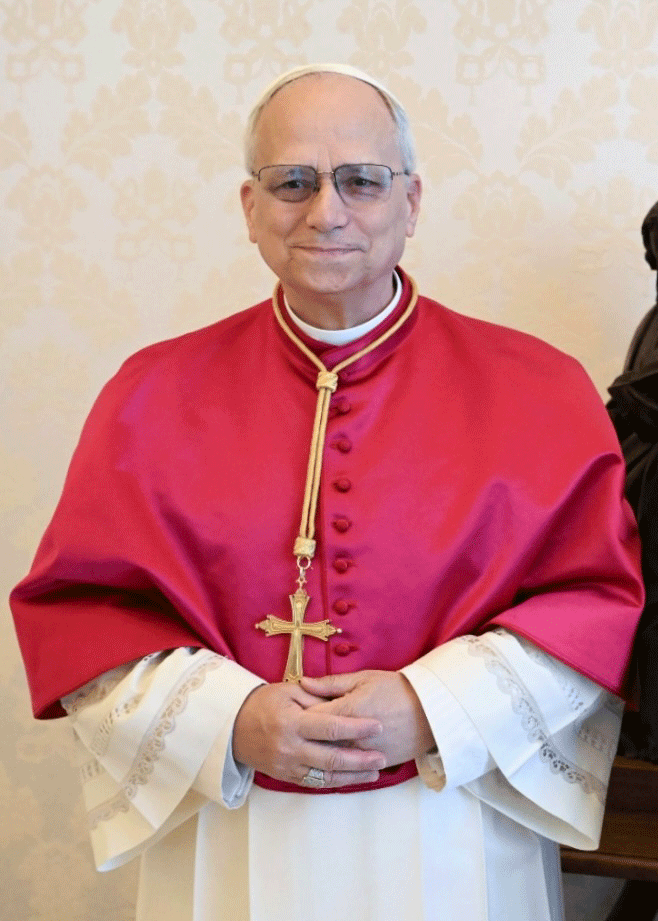
–-Pope Leo XIV. The newest pontiff represents a series of firsts: the first pope to have been born in the United States or North America, the first born after World War II, and the first from the Order of Saint Augustine. His selection of a name is viewed as a signal of his priorities. His predecessor, Pope Leo XIII, who served from 1878-1903, is recalled as centering worker’s rights and dignity in a time of rapid change not unlike our own. Pope Leo is moving rapidly and decisively to leave an imprint on a range of public debates around the world.
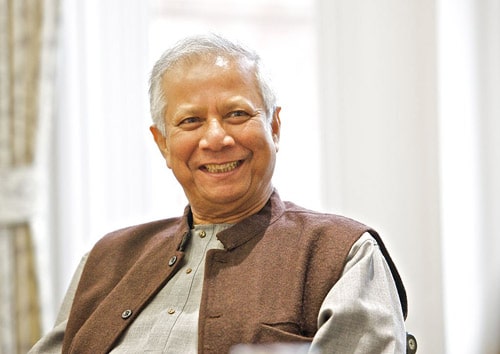
—Wendy Kopp. Through the organization she founded, Teach for America, Wendy Kopp is having a profound influence on American public schools. She has directed the talents of high-achieving college graduates into often neglected classrooms. As with any educational enterprise, there is attendant controversy. What cannot be doubted is that the experience of serving in Teach for America is informing and empowering young people who will carry their first-hand experiences into careers in many sectors. This alone ensures enduring influence.
—Muhammad Yunus. The Nobel Peace Prize-winning banker, educator, and entrepreneur has pioneered the micro-credit and micro-finance space. His fundamental insight is that many of the people who were viewed as high risks for credit under longstanding lending criteria are, actually, exceptionally promising as entrepreneurs. Yunus was then able to translate his vision into practice. His bottom-up, outside-in perspective, combined with his real-time accomplishments, place him front-and-center as an influential 21st century leader.
—Marc Edwards. Edwards, a professor of engineering at Virginia Tech, spearheaded the discovery of systemic government failures–local, state and federal–in the historic Flint, Michigan, drinking water and public health crisis. His example illuminates the vital role of non-governmental efforts, constituting a fail-safe in regulation. American law includes a place for such a role; other nations are now examining corresponding legal provisions to avoid breakdowns such as the revelations of systemic violations of motor vehicle emissions rules.
21st Century Leaders in Religion and Popular Culture
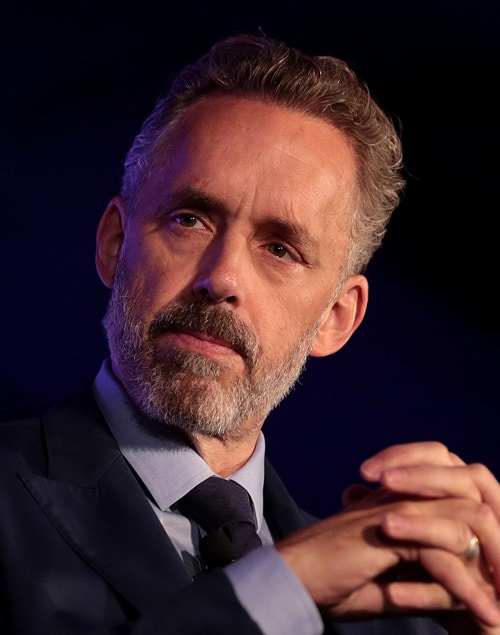

—Captain Tom [Captain Sir Thomas Moore]. In a remarkable example of twenty-first century viral communication, Captain Tom, a British businessman and Second World War veteran, set about to raise funds for the National Health Service during the late pandemic. Seeking pledges for walking in the run-up to his 100th birthday, Captain Tom caught the imagination of the world. More than a million donations later, he was knighted by Queen Elizabeth II, reflecting the affection he stirred from the British people. He died, age 100, on February 2, 2021. Captain Tom is commemorated with numerous honors, becoming a symbol of English patriotism, heroism, grit, and generosity.
—Popular Music. Sir Paul McCartney, Bono, and Lady Gaga exemplify the now longstanding and accelerating trend of popular entertainers leveraging celebrity to advance political and social causes. Sir Mick Jagger, along with other older performers, is also recasting understanding of the contributions of older generations.
21st Century Legacy Leaders
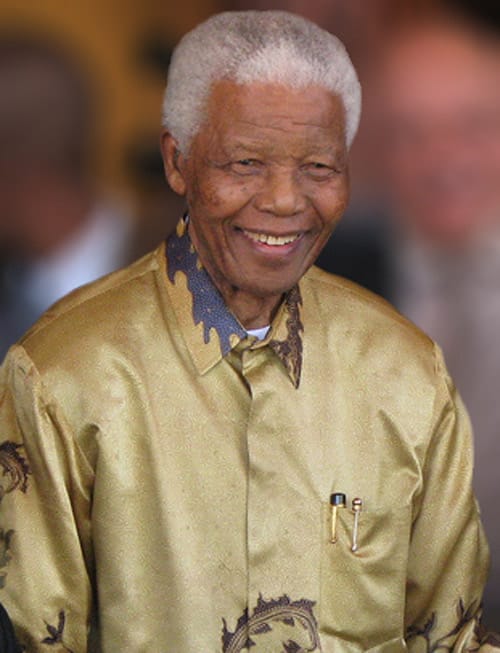
Among 20th century American political figures, Theodore Roosevelt, Woodrow Wilson, Franklin Roosevelt, Eleanor Roosevelt, Harry Truman, Dwight Eisenhower, John Kennedy, and Ronald Reagan continue to offer lessons, in new contexts.
Who else would you include in such a list? Who speaks to you from across the divide of other historical times?
Great 21st Century Leaders

If “great” leaders appear to be more scarce than ever, the capacity of otherwise “ordinary” people to do great things has never been greater. The Internet and social media can leverage far-reaching influence. And they can do so outside of traditional gatekeepers in large institutions.
Where are you finding leadership today? Are you seeing it in large, centralized organizations? Or are you finding it in decentralized settings?
Where do you see the trends heading?
Where are you investing your own resources?
An Evolving List
Inevitably, a list of 21st century leaders is necessarily incomplete–and always evolving.
Who would you add to the list?
What 21st century leaders have you observed or encountered? Are any of them outside of traditional positions of authority or power?
Do you see yourself as a 21st century leader? Why… or why not?
What are you doing to increase the value of your service to others?
What are you doing to help others serve more effectively as leaders in their areas of influence?
Who Are You Serving?
21st Century Leaders List

[…] https://servetolead.com/21st-century-leaders-list/ […]